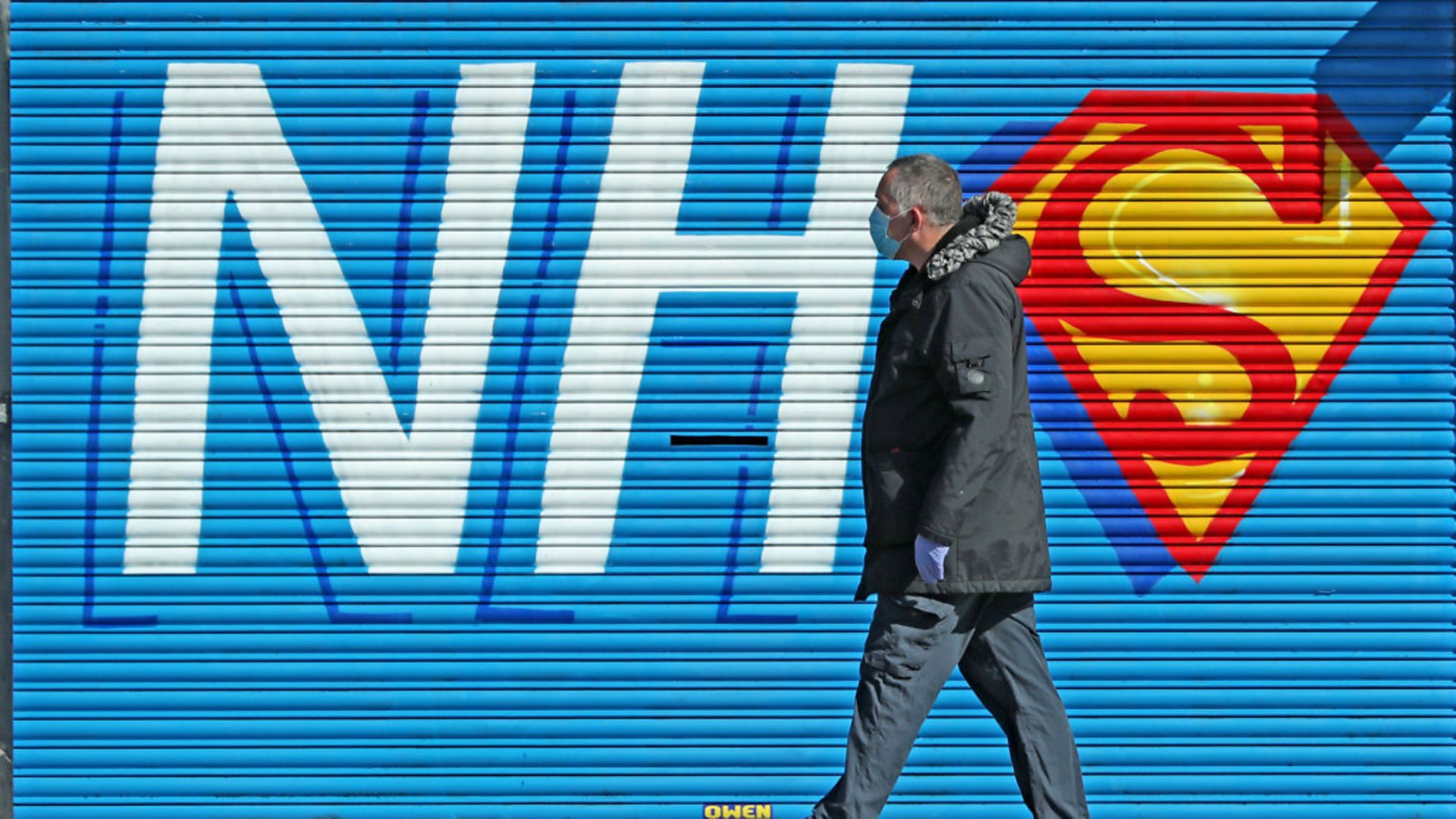As a retired hospital physician specialising in geriatric care, I support a lot of what Paul Mason had to say on the plight of our NHS (“Transform the NHS into an engine for the redistribution of wellbeing”, TNE #326). There can be no real doubt as to the causes of its problems – at the top of the list is the mismanagement and serious underfunding of the NHS by successive governments.
But there is one area where I would depart from his analysis, that we should try to reduce the admissions of patients (nearly always elderly and frail) into hospitals and care for them instead in the community. The real reason for the idea having such political traction is purely economic. Hospital beds are very expensive to maintain, so that any idea which could provide an excuse for cutting bed numbers is welcome to politicians.
But the obvious fallacy of this notion is that it is not the beds per se that are expensive, it is the staff who are needed to diagnose, treat and support the patients in those beds that drain the NHS coffers. It is certainly possible to move staff around neighbourhoods to assess, diagnose, treat and care for some ill patients in their homes, and it is true that some investigations and treatments are possible to set up in the community, but all this only comes at considerable extra expense.
Therefore, it is economic illiteracy to follow the community care route if you are expecting a similar standard of care as hospitalised patients enjoy.
Robert Behrman MD FRCP
Winter Hill, Berkshire
What a shame that Paul Mason ended his acute, sensible piece about the NHS with a sarcastic jibe about “mindfulness and spinach smoothies”. These particular activities may not be to his taste, nor mine, but they are symptomatic of those of people of all classes who are trying to gain or maintain their own good health… thus reducing their own potential pressure on the NHS.
Anne Page
London EC2
I’m not convinced increasing taxes is the answer to saving the health service (Letters, TNE #326). Being successful and rich should not be seen as a crime. Instead, we should focus on removing tax havens so everybody pays a fair share.
Paul Mendes da Costa
Via Facebook
Poison pill
In “The Brexit penny has dropped for Sunak” (TNE #326), David Lidington tells us the PM apparently “recognises the need to have good relations with the EU”. What follows are a few cherries he wants to pick.
Sunak is pressing on with the hasty removal of up to 4,000 laws from the statute book for the sole reason that 27 other countries have agreed to them. He won’t even accept a two-year delay for proper consideration. This is a poison pill for EU relations.
PE Basford
Herts
While it is welcome to see a prominent Tory such as David Lidington tiptoeing towards an apology for his party’s role in leading the nation into the all-too-predictable fiasco of Brexit, he is still much too generous – in denial, even.
He acknowledges that the promised benefits in healthcare, foreign trade, skills, infrastructure and productivity have not “magically” been delivered; but that is a long way from admitting that it is difficult to find a sector that has not, on the contrary, been adversely affected.
Add to his list agriculture, fisheries, food processing, manufacturing, inward investment, higher education, science, hospitality, construction, finance… need I go on?
Charles Baily
Bedford, Bedfordshire
If Sunak indeed has had a seeing-sense epiphany, he needs to not keep his provocative arch-Brexiteer backbenchers on board, but let them go. Because although they might indeed foster more discord outside the tent, if that were possible, their intractable stance will not be missed.
Judith A Daniels
Cobholm, Norfolk
Rotten rulers
Re: “The Tories’ immoral maze” (TNE #326), I think everybody fully understands by now that the Tories are utterly corrupt. Still, it may have surprised some to find out that the dear old BBC is now an integral part of the Tory cesspit.
The whole edifice of the English ruling class is rotten to the core (see also the Met, and civil servants assisting Putin’s oligarchs to threaten journalists with ruinous lawsuits if they dared publish the truth). Soon, the gust of wind that brings the whole structure down will hit them.
Ian Anderson
Via Facebook
Is it not time for a campaign to show the inequity and ineffectiveness of a tax system which favours the rich? You might start with a red bus with this message on its side saying: “We give away £4bn a year in tax relief to the wealthy. Let’s spend it on the NHS instead.”
That’s what the Resolution Foundation estimates is claimed by the super-rich. Never mind that stupid and misinterpreted joke about “Labour, having no money left.” Under the Tories it isn’t even collected!
Dr Colin J Smith
West Kirby, Wirral
Bravo Boris?
At the risk of incurring the wrath of my fellow Europeans and Tim Bradford (“What is the MP for Uxbridge doing in Ukraine”, TNE #326), I have to say Johnson’s only real success was his support for Ukraine.
Greg Sharp
Via Facebook
Mandrake (TNE #326) reports that Boris Johnson’s book deal is worth £6m. Presumably, Boris is giving the whole lot to St Thomas Hospital, which allegedly saved his life?
Paul Andrews
A bad name
The collapse of civilisation is not so much characterised by roaming packs of carnivorous, anti-human poodles and pit bulls as Will Self suggests (“Multicultural Man: On Dogs”, TNE #326) but by roaming gangs of weaponised, anti-social humans – spewing hate, perpetrating acts of violence and spreading mayhem.
Dog attacks on humans are unusual and often have a human aetiology; fatalities are tragic, rare and highly distressing; everything must be done to prevent attacks happening.
After reading Self’s diatribe on dogs, I Googled Byron’s Epitaph to a Dog, written after the death of his beloved Botswain (who possessed “all the Virtues of Man without his Vices”).
Even allowing for the understandable hyperbole associated with profound grief, Byron captures the very special, synergistic, inter-species relationship that has evolved over thousands of years between us and our best non-human friends.
Like many dog owners, I have learned a lot from my dog (Doug, a 12-year-old Yorkie) – including how to be a better human towards other humans.
Chris Fitzpatrick
Dublin, Ireland
As a keen disciple of Let’s Think in English, I was delighted to find a reference to Saki’s excellent Sredni Vasthar – one of my pupils’ favourite stories – in Will Self’s most recent column.
My year 8s would like to take issue, though, with Self’s suggestion that Conradin “sacrifices” the awful Mrs DeRopp. It is certainly true that Conradin prays that his beloved ferret will “do one thing” but it is never quite clear what that “one thing” is. It is his myopic cousin who pokes around where she is not wanted and, having stolen the carefully hidden key to the hutch, meets a (deservedly) sticky end. My class expect a full and frank apology for this baseless attack on Conradin’s good name.
For my part, something seems somewhat familiar about an unlikeable figure of authority who shortsightedly unleashed forces they cannot control. If only all comeuppances were as swift and poetic as those meted out by the great Sredni Vashtar.
Matthew Hamblin
South Yorkshire
Back on track
Tom Chesshyre’s “The night train to Europe” (TNE #326) correctly describes their revival over the past seven years. Night trains are opening up new and greener journey opportunities and an alternative to flying.
This renaissance has, at least in part, been the result of pressure by passenger organisations in at least nine European countries, coordinated by the Back-on-Track network. Its efforts have included political lobbying, including many meetings at the European Parliament and resulted in the EU commissioning a 2021 study into the future of international day-and-night trains.
There has also been innovation, thanks to EU encouragement of new entrants into the market, which has also enabled a cooperative to launch the European Sleeper between Brussels and Berlin in May.
Readers can find out more here – not only to use these new services but also to campaign for more of them.
Trevor Garrod
Lowestoft, Norfolk
Right royals
I read “Great Lives: Alexandra of Yugoslavia” (TNE #326) with interest and would like to point out that Prince Paul, who acted as regent during King Peter II’s minority, was the young king’s first cousin once removed, not his uncle.
Paul was a first cousin of Peter’s father, King Alexander I of Yugoslavia, who stipulated in his will that Paul should act as regent if Alexander were to die before Peter attained his majority.
Prince Paul married an elder sister of Princess Marina of Greece and Denmark and was therefore an uncle by marriage to the present Duke of Kent, Princess Alexandra, and Prince Michael of Kent.
Alexandra was the child of a morganatic marriage between King Alexander I of Greece and Aspasia Manos who was a commoner. Initially, both Alexandra and her mother were denied royal titles, but the situation was rectified when King Constantine I was restored in 1922.
Alexandra claimed that she was more Greek than the rest of the Greek royal family as she had a Greek mother when Greek princes, who had no Greek blood themselves, married foreign princesses and aristocrats.
Rosemary Morlin
Oxford, Oxfordshire
German fight
May I tell your correspondents my German passport story and suggest they keep trying?
My mother was born in Germany, came to England in 1932 and married my father in 1938. All wrong, according to the then laws, so I tried to get citizenship through the old rules, classing me as a refugee and asylum seeker. I detailed the times I’d lived in Germany, listed my contacts and travels, filled in forms about my past, present and future, admitted the state of my finances, then did a German language test and a citizenship test – 30 questions out of a possible 300.
All done, and my passport in sight. Then I was told that the German government had passed a law, in August, which meant I could have had citizenship all along. It was considered sexist that my mother lost her German nationality simply because she was a woman (as a man she would not have done) and so, 20 years after her death, it was restored to her. Ergo, I’m German.
Ergo, my children can be too. Even though they don’t speak a word of German…!
To the two gentlemen who think it’s all over. It isn’t, now. Don’t give up.
Chris Shepherd
It’s interesting to read the letters (TNE #325, #326) following Tanit Koch’s article on German passports. My brother-in-law has two children now in their thirties by a German mother who still lives in the UK. Both adult children have German nationality having never visited Germany, not even for a day. Neither speak the German language.
Robert Rawlinson
Middleton, Derbyshire



